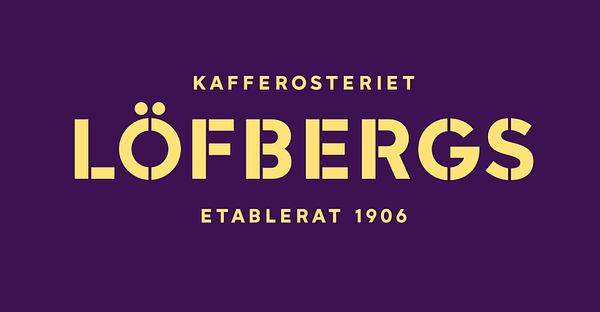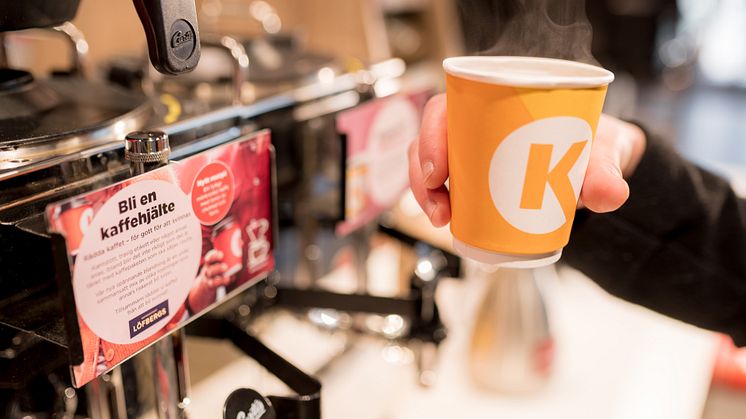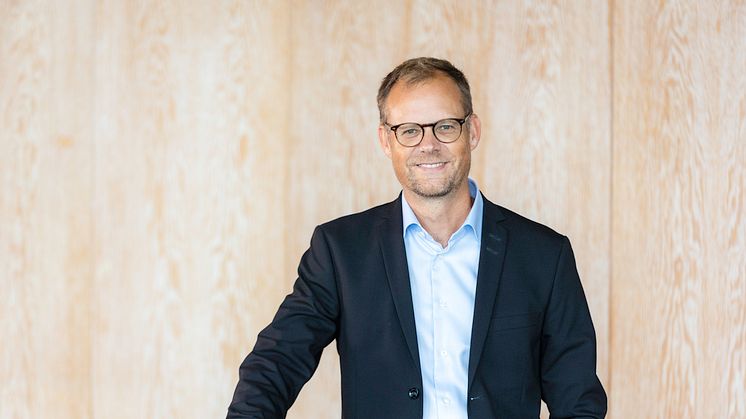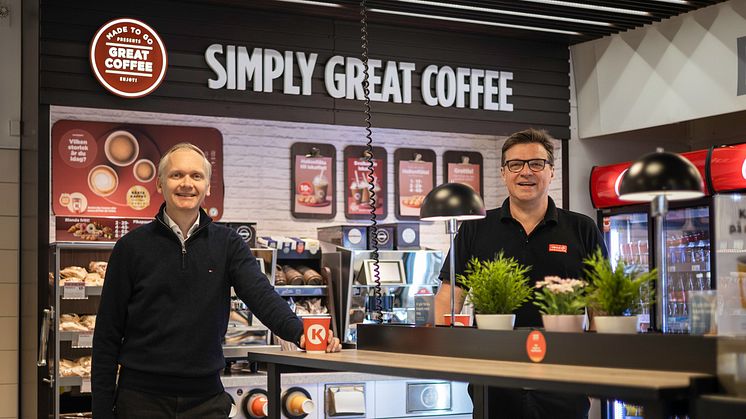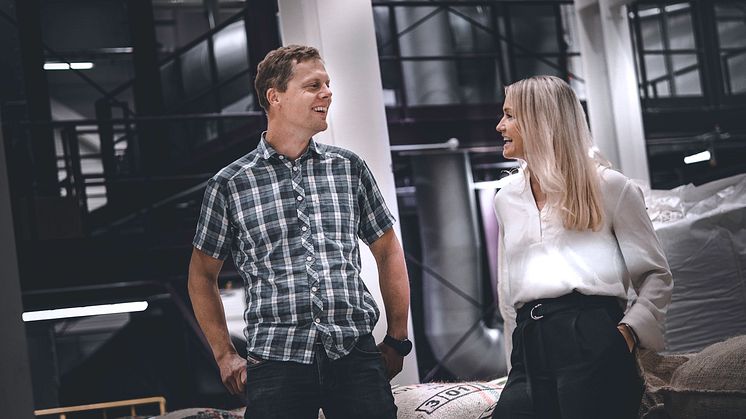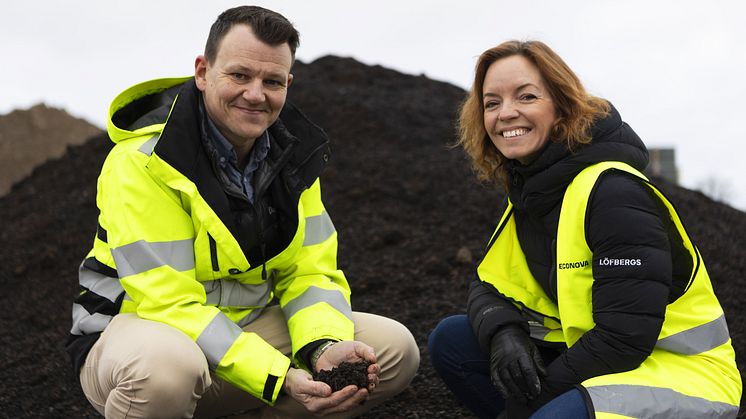
Press release -
Circular cooperation gives coffee residues new life
The Swedish-based coffee group Löfbergs is behind the ambitious initiative Circular Coffee Community with the clear-cut purpose of eliminating all waste related to coffee. A unique test will now determine if residues from Löfbergs’s coffee roastery can be used to produce nutritious garden soil. If the test is successful, the coffee residues can replace fossil peat, which would decrease the emissions of greenhouse gases.
“Using coffee grounds to give plants extra nutrition is a well-tried method. It made us wonder if coffee beans, which for different reasons end up outside our regular flows, can be used for the same purpose,” says Annika Djurberg, Commercial Project Manager at Löfbergs.
“As far as we know, no large-scale trials have been made with coffee soil before, so this is an exciting opportunity to develop a new, unique and green product. The pilot trial will come to an end shortly, and it is looking very promising. To all appearances, it will be a product that we start to sell next year,” says Anders Bergquist, Sustainable Development and Strategy Manager at Econova, the leading company for soil and garden products in the Nordic region.
9 tons of coffee residues are recycled
Löfbergs and Econova are two family businesses with sustainability and circular transformation high on their agenda. In their joint trial, about 9 tons of coffee residues from Löfbergs are used, waste that normally would be recycled as energy through combustion.
“The coffee residues are now mixed and composted together with manure and residues from the forest instead. The result is a nutritious soil raw material that among other things can be used as garden soil,” says Anders Bergquist.
"Recycling of coffee residuals can replace the fossil peat, resulting in environmental benefits, but there are financial ones as well. Today, we pay to get rid of the coffee residues. If they can be used as raw material for new products instead, they suddenly get a value, which is an important driving force in a circular economy, says Annika Djurberg.
Circular transformation
For Löfbergs, the cooperation with Econova is a part of the circular transformation, where the goal is to generate zero waste. Löfbergs has made a lot of progress; only 0.5 per cent of the produced coffee is discarded today.
“The coffee soil has the potential to decrease our waste even more. At the same, it is a solution that we would love to see other roasteries use as well, since the entire coffee industry needs a circular transformation,” says Annika Djurberg.
To drive circular conversion forward, Löfbergs has started the Circular Coffee Community, an initiative where Löfbergs invites consumers, companies and others to find solutions that contribute to a circular coffee industry with zero waste.
“This is not something we can do on our own. The road ahead is all about cooperation and developing sustainable solutions together with others. The project with Econova is a good example of that,” says Annika Djurberg.
More information:
Anders Thorén, Group Communications Manager, Löfbergs, anders.thoren@lofbergs.se, +46 703 55 64 22
Topics
Categories
The Swedish based coffee group Löfbergs is a Family Business founded in 1906. We are 300 coffee lovers operating in ten core markets in Europe, sharing the passion for taste, trends and sustainability. We have a turnover of SEK 1.5 billion and is one of the world's largest purchasers of organic and Fairtrade-labeled coffee. The group includes the brands Löfbergs, Peter Larsen Kaffe, Percol and Kobbs.
